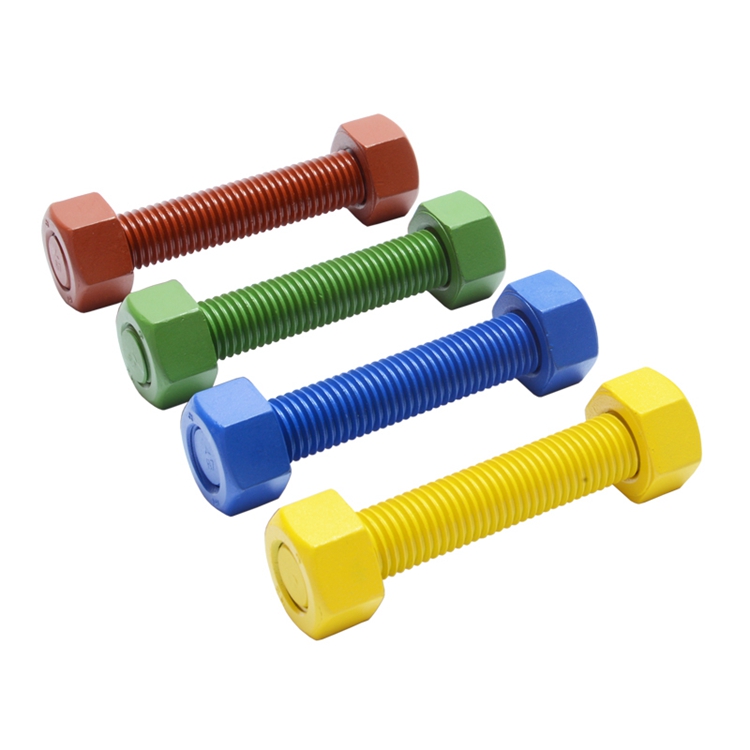din6923 flange nuts suppliers
Nov . 17, 2024 01:07 Back to list
din6923 flange nuts suppliers
Understanding DIN 6923 Flange Nuts and Their Suppliers
In the realm of fasteners, flange nuts have become increasingly important due to their versatility and reliability in various applications. DIN 6923 flange nuts, in particular, are engineered to meet specific standards in terms of design and performance. This article delves into the significance of DIN 6923 flange nuts, their applications, and tips on finding reputable suppliers.
What are DIN 6923 Flange Nuts?
DIN 6923 flange nuts, also known as hex flange nuts, are characterized by a wide, integrated flange that provides a larger bearing surface. This design helps distribute the load evenly, which reduces the risk of damage to the components being fastened. Typically made of high-strength materials such as carbon steel, stainless steel, and alloy steel, these nuts are available in various grades to match different levels of resistance to corrosion and mechanical stress.
The unique feature of the flange nut is its ability to serve as a washer and nut in a single component. This reduces the number of individual parts in assembly processes, thereby streamlining operations and enhancing overall efficiency. Additionally, the flange nut is designed to lock in place, which aids in preventing loosening caused by vibrations.
Applications of DIN 6923 Flange Nuts
DIN 6923 flange nuts find applications in various industries, including automotive, construction, and manufacturing. In automotive design, for instance, these nuts are frequently used to secure components in engines and chassis, where a secure and vibration-resistant fastening system is critical. In construction, they are employed in structural steelwork, ensuring that components remain firmly attached under varying loads.
Another area where DIN 6923 flange nuts excel is in heavy machinery. Equipment operating under extreme conditions, such as mining and agriculture, benefits from the reliability that these nuts provide. Their ability to maintain tightness despite considerable movement makes them an ideal choice for critical applications.
Finding Reliable Suppliers
din6923 flange nuts suppliers

When looking for suppliers of DIN 6923 flange nuts, it is essential to consider several factors to ensure that you are sourcing high-quality products.
1. Certifications and Standards Look for suppliers who provide products that meet international standards such as ISO, ASTM, and, of course, DIN 6923. Certifications indicate that the products have undergone rigorous testing and quality assurance processes.
2. Material Specifications Ensure that the supplier offers a range of materials that meet your project requirements. For example, if you require corrosion resistance, check if they supply stainless steel flange nuts.
3. Experience and Reputation Choose suppliers that have built a solid reputation over the years. Established suppliers often have more resources to ensure quality control, and positive customer reviews can attest to their reliability.
4. Customization If your project requires specific sizes or grades, seek suppliers that can provide customized solutions. This flexibility can be a significant advantage in specialized applications.
5. Customer Support Good customer service is crucial in the supplier selection process. A responsive supplier can assist you in choosing the right product for your needs and provide guidance in case of issues.
6. Pricing and Availability Compare prices among several suppliers, but be careful not to compromise quality for cost. Additionally, check their inventory levels to ensure that they can meet your delivery deadlines.
Conclusion
DIN 6923 flange nuts are a critical component in various industries, offering durability and reliability that enhance the safety and performance of assemblies. Understanding the significance of these fasteners and knowing how to find reputable suppliers can ensure that you have access to the best products for your needs. As you navigate the market, keep in mind the importance of quality, certification, and customer service, which will ultimately lead to successful and efficient projects.
Latest news
-
Premium Phosphated Drywall Screws Supplier | Durable, Rust-Resistant
NewsAug.27,2025
-
Reliable Wire Bolts Suppliers | Quality Zinc Plated Fasteners
NewsAug.26,2025
-
Wire Bolts Suppliers: Durable & Reliable Fasteners for Every Project
NewsAug.25,2025
-
Premium Cabinet Bolts Supplier | Wholesale & Custom Solutions
NewsAug.24,2025
-
Reliable Axle Nuts Supplier | Quality & Precision Fasteners
NewsAug.23,2025
-
Durable Bolts for Lawn Mower Handle - Top Supplier & Manufacturer
NewsAug.22,2025
